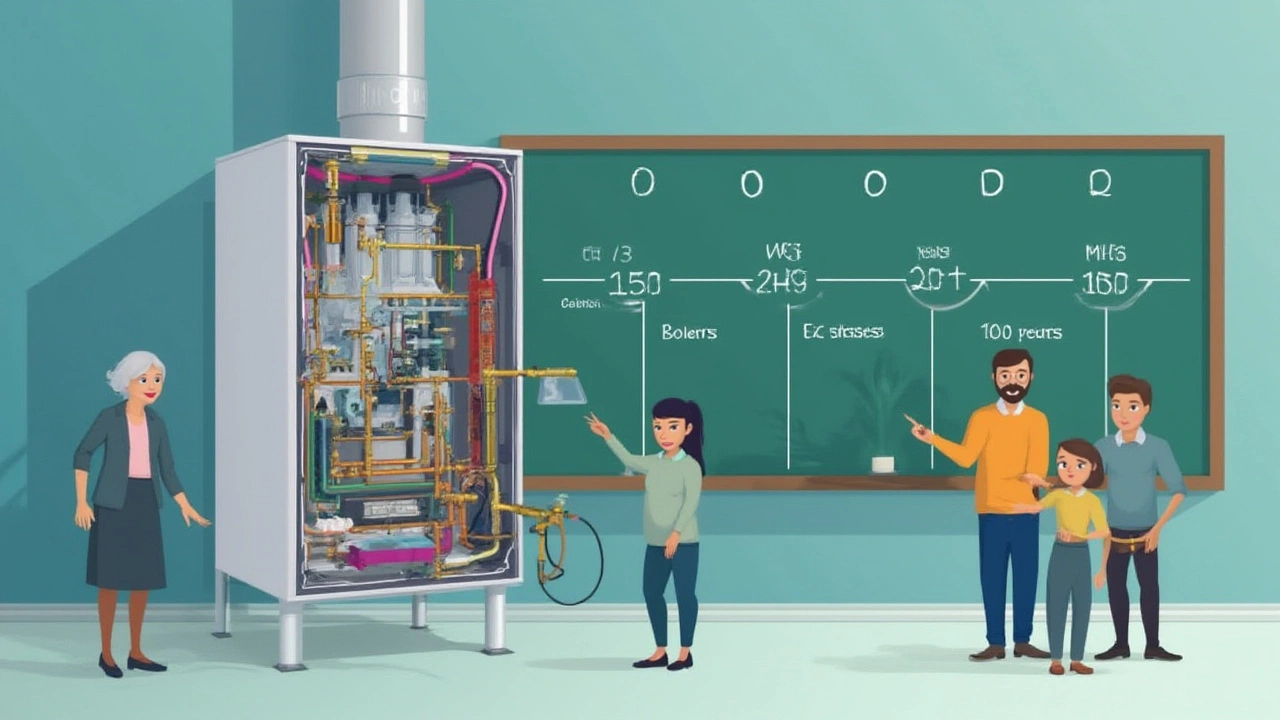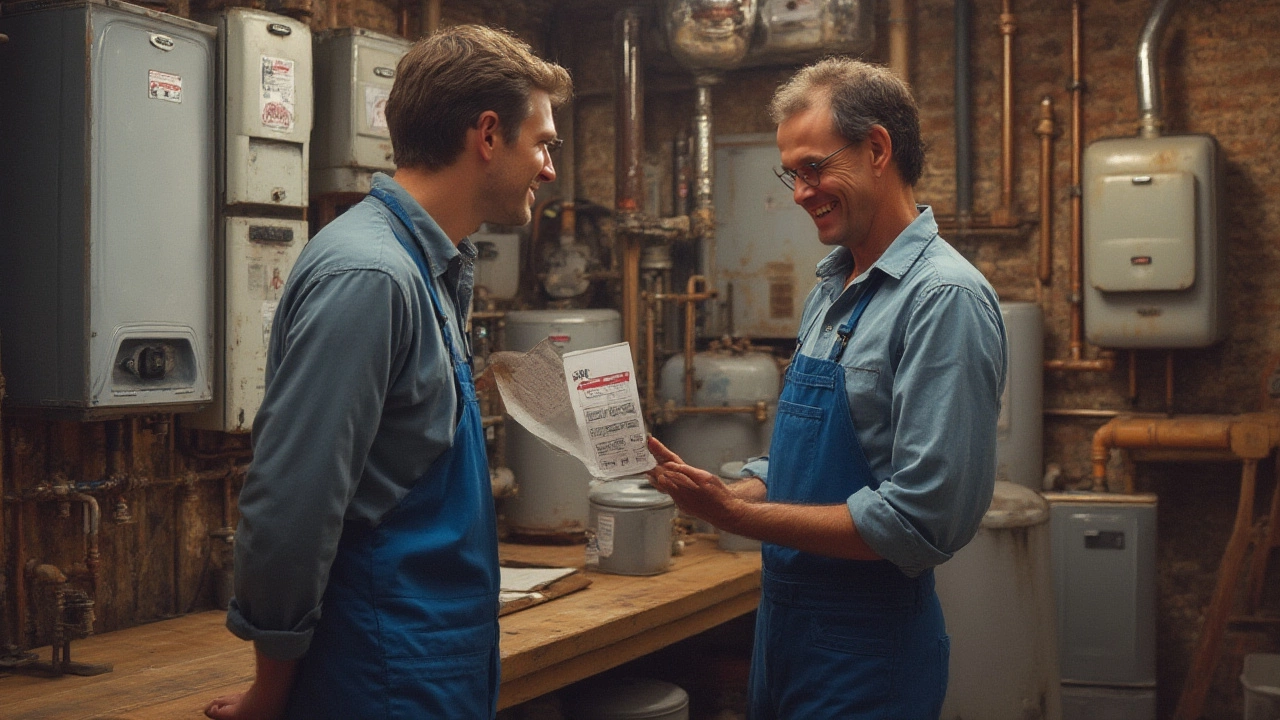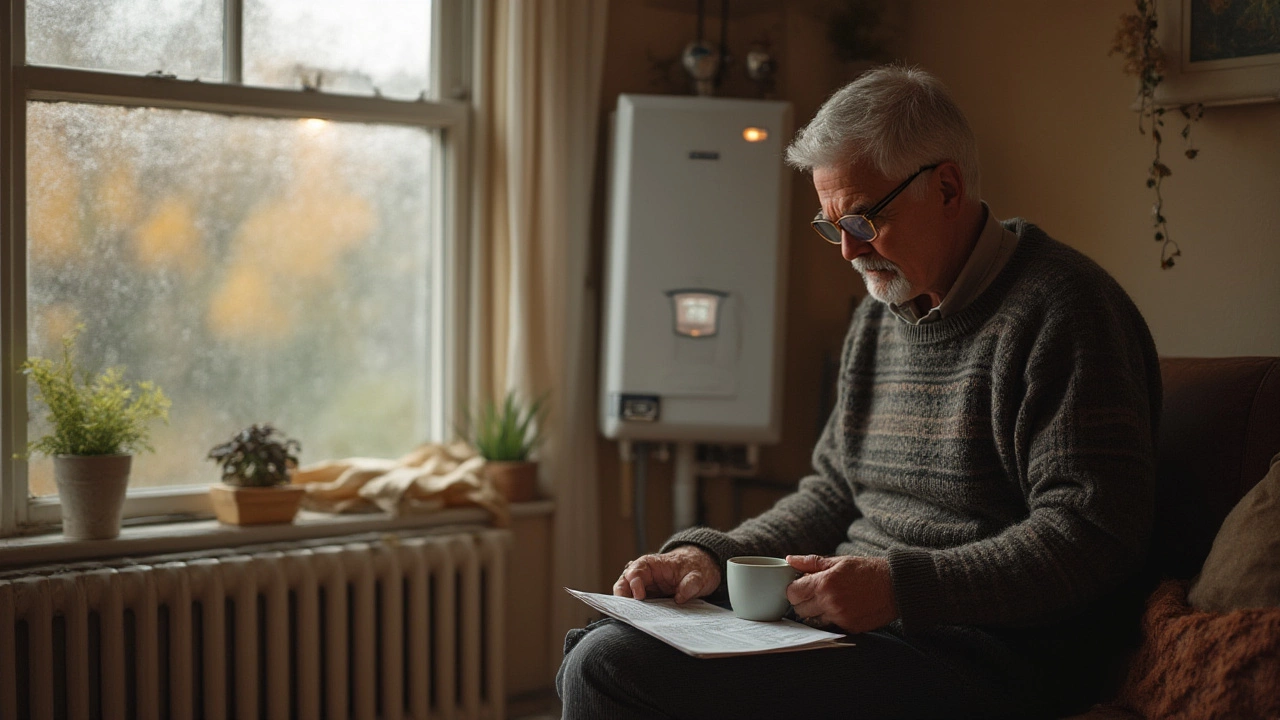Here’s something you probably never thought about—your trusty old boiler, quietly humming away in a back closet or down in the basement, works harder than most kitchen appliances. Out of sight, out of mind, right up until the radiators go cold in January. I’ve learned (not the easy way) that you don’t want to be guessing your boiler’s lifespan when you’re wrapped up in three hoodies and a blanket. So, how long is a boiler actually good for? That answer can save you hundreds—sometimes thousands—if you keep it in mind and act before trouble strikes.
How Long Boilers Really Last—And Why the Numbers Vary So Much
Ask three heating engineers how long a boiler should last, and you’ll get three different answers. But let’s cut through the guesswork. Most modern gas boilers keep going strong for 10 to 15 years, especially when you stick to basic maintenance. Some of them make it to 20 years or more, while others sputter out before ten. So what’s happening? It usually comes down to the quality of the installation, the brand, and—no surprise—how well you care for it.
Back in the 1970s and 1980s, cast-iron boilers were built like tanks and could outlast your car. Some of the “old timers” report their systems running into their third decade, but those days are mostly gone. Modern boilers focus on efficiency rather than immortality. They have more parts, more electronics, and save you plenty on energy bills—but usually, you’re looking at a solid 12-15 year window for peak performance.
You might not know that combi boilers, which are super popular now thanks to their all-in-one hot water and heating, tend to have slightly shorter lifespans due to the extra workload. System and heat-only boilers can hang in there a bit longer, especially if they aren’t pushed to their max output all the time.
| Boiler Type | Average Lifespan (Years) | Notes |
|---|---|---|
| Modern Gas Boiler | 10-15 | With regular servicing |
| Combi Boiler | 8-12 | Works harder, may wear out quicker |
| Heat-Only Boiler | 12-20 | Older designs sometimes hit 30 |
| Oil Boiler | 15-20 | Usually robust but costlier to run |
Brand reputation counts—some boilers from companies like Vaillant, Worcester Bosch, and Baxi tend to show up on “most reliable” lists over and over, especially in UK and European surveys. But there’s a wild twist: even the most reliable brand won’t survive long if it’s installed poorly or ignored. In my own flat years ago, the previous owners skipped two annual services. The result? A replacement bill equal to a week’s holiday budget.
One more quirk—your water. Living somewhere with hard water (full of minerals) can shave years off a boiler by causing limescale buildup. That’s a silent killer for heating elements and heat exchangers. Down south in hard-water zones, it’s not unusual for service engineers to rescue boilers at only 8 or 9 years old, just because of scale damage.

Early Warning Signs Your Boiler Is Wearing Out
So how do you know if your boiler’s still got years left, or if its clock is winding down? Odd noises, cold radiators, frequent breakdowns—none of these are just “quirks.” They’re warning shots across the bow. In fact, engineers have a whole mental checklist for “tired boiler” symptoms.
- Noise isn’t cozy: If your boiler starts banging, whistling, or making new whooshing sounds, that’s often a sign of debris or parts wearing out.
- Frequent repairs: Once you notice callouts happening more than once or twice a year, the cost-benefit tips toward replacement.
- Inefficiency: Are your gas bills creeping up, even though you haven’t changed your heating habits? Old boilers get lazy—they lose efficiency and waste fuel.
- Water leaks: Any moisture or puddling around a boiler is bad news. Could be leaking seals, valves, or corrosion inside. It rarely gets better on its own.
- Slow heating: When hot water takes ages to arrive or radiators warm up slowly (or unevenly), it’s usually a red flag.
- Strange smells: A faint burning, metallic, or sulfur smell shouldn’t be ignored. (If you suspect a gas leak, always evacuate and call emergency services first.)
- Yellow flame: Natural gas boilers should burn bright blue. If it’s yellow or orange, it could mean incomplete combustion—and that can be dangerous.
Here’s a weird but true fact: home insurance companies and new buyers are increasingly asking about boiler age. Why? Because a boiler past its average lifespan is a risk for catastrophic failure—and flooded basements make memories for all the wrong reasons.
If you’re not sure about your boiler’s exact age, you can usually find the manufacturing date on a sticker somewhere on the unit (sometimes hidden under the front cover). Lost the sticker? Some brands let you call or check online using the serial number.
I learned the hard way that “nursing” a failing boiler costs more in call-out fees and lost time than just swapping it when the signs become consistent. And that’s before you add in the heatless nights and, for me, apologizing to Bruno after the house dropped to 50 degrees one snowy January. Trust me—your dog won’t forgive you fast (mine didn’t).

Get More Years Out of Your Boiler: Smart Maintenance and Upgrade Tips
So you’ve got a decent boiler—how do you squeeze the most years from it? The not-so-secret trick is pretty boring: regular service. Just like changing oil in your car, boilers crave annual attention. A proper service usually includes a safety inspection, cleaning, parts check, pressure adjustment, and more. If something’s starting to wear, a tech can catch it cheap before it wrecks the unit.
- Book your annual service every fall, before peak heating season. Set a reminder in your phone—you’ll thank yourself.
- Bleed your radiators at least twice per year. Trapped air causes your system to work harder, wearing the boiler prematurely.
- Install a magnetic filter in your heating system to trap rust and scale. In areas with hard water, consider a scale reducer. These upgrades aren’t pricey and can buy you a few extra years.
- Keep the boiler’s location clear—no piles of storage or laundry blocking airflow. Boilers need room to breathe and vent heat safely.
- Monitor water pressure (check your manual for the correct range). Too high or too low strains the system and can lead to leaks.
- Use a programmable thermostat to reduce “on-and-off” cycling—that’s the stop/start pattern that wears down the system most.
If you’re on the fence about whether to keep patching up your existing boiler, there’s a straightforward math trick: If the next repair bill is more than half the price of a new boiler, it’s usually time to upgrade. Modern boilers are about 92-94% efficient, while older systems sometimes drop as low as 60%. Saving 30% on fuel each winter piles up fast under cold skies.
Brands matter, but proper installation and sensible daily use go further. A top-tier model, slapped in by a rookie installer, can fail in under five years (sad but true—an experienced tech told me he’d seen it happen dozens of times). If you’re replacing, always use an installer registered with Gas Safe (UK) or whatever the equivalent is in your area—just don’t go with “my mate Dave off Facebook.”
Lastly, keep an eye out for government grants and incentives for boiler upgrades. Eco-boosting heat pumps and hydrogen-compatible gas boilers are starting to show up (especially if you’re in the UK or Europe)—worth a peek if your system is ancient and you don’t want a like-for-like replacement.
To wrap up, a boiler lifespan depends on attention, water quality, and the effort you devote to maintenance. Treat it well, and you’ll stay toasty longer—no angry dog looks, and no surprise cold mornings. Avoiding that? Worth every penny and every little bit of effort.





